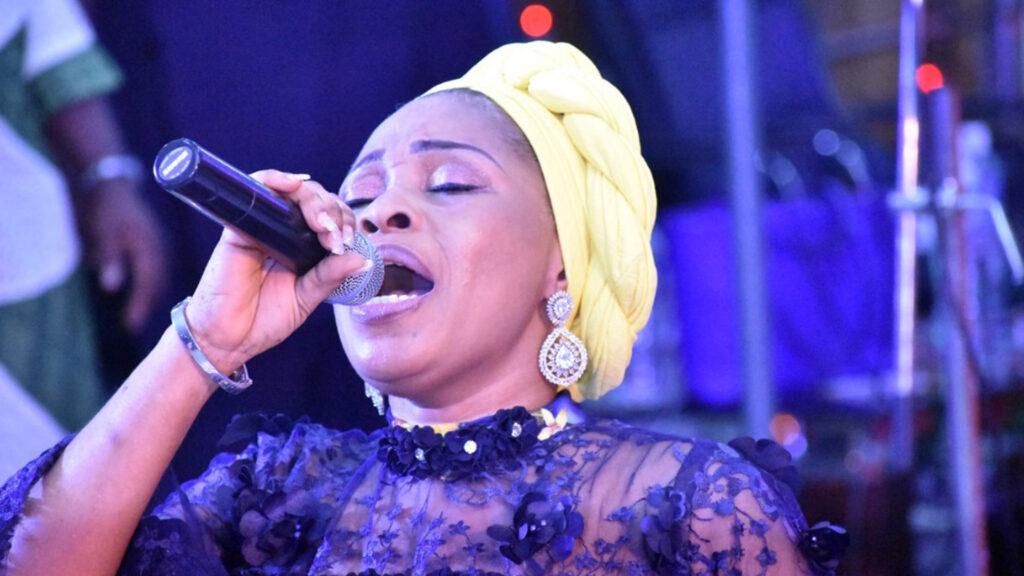Aboru Aboye saga: Tope Alabi finally opens up, says it’s purely Yoruba language, not for Ifa priests

A popular Nigerian gospel singer, Tope Alabi, has addressed the controversy surrounding her viral video in which she was heard singing in Yoruba language using the words ‘Aboru Aboye’, a form of greeting among Ifa initiates.
Telescope.ng gathered that in a video response, Alabi clarified that ‘Aboru Aboye’ is a pure Yoruba language and not exclusive to traditionalists.
She explained that her use of the language is her unique style as a gospel artist.
Alabi referred to biblical examples of sacrifices, such as David’s faithfulness to God, to highlight that sacrifices are part of religious practices.
She also pointed out that the Yoruba version of the Bible uses the Yoruba language to convey the concept of sacrifice.
To further support her argument, Alabi quoted Romans 12:1, which talks about presenting one’s body as a living sacrifice, using the Yoruba words ‘Aboru’ and ‘Aboye’ to explain the meaning.
She said: “It was recorded that David made a sacrifice of faithfulness to God. Why was the word sacrifice not written as the same English word in the Yoruba version of the Bible? It is a Yoruba language. There is no special language for traditionalists. We are all speaking the Yoruba language.
“If some people say they want to use the language in their own style, it is not bad. We have also decided to use it in our own style.”
In establishing her points with specific reference to a bible passage which is Romans 12:1, she said, “Brethren, by the mercies of God, that you present your bodies a living sacrifice, holy, acceptable unto God, which is your reasonable service. The word ‘acceptable’ is the ‘Aboru’ while ‘living sacrifice’ is Aboye.”
In an interview with The Punch, Orunmila, the chief priest of Iledi Imule Agba in Oyan, Osun State, commented on Alabi’s usage of traditionalists’ lexicons.
He mentioned her use of terms like ‘Eledumare’ and appraisals associated with Orunmila and Yoruba deities. However, he clarified that the phrase ‘Aboru Aboye’ is primarily used by Ifa initiates.
Orunmila explained that the phrase became common among Ifa initiates because it originated from the Odu Ifa ‘Ogunda meji,’ which tells the stories of three women—Aboru, Aboye, and Abosise—who provided special help to Orunmila.









